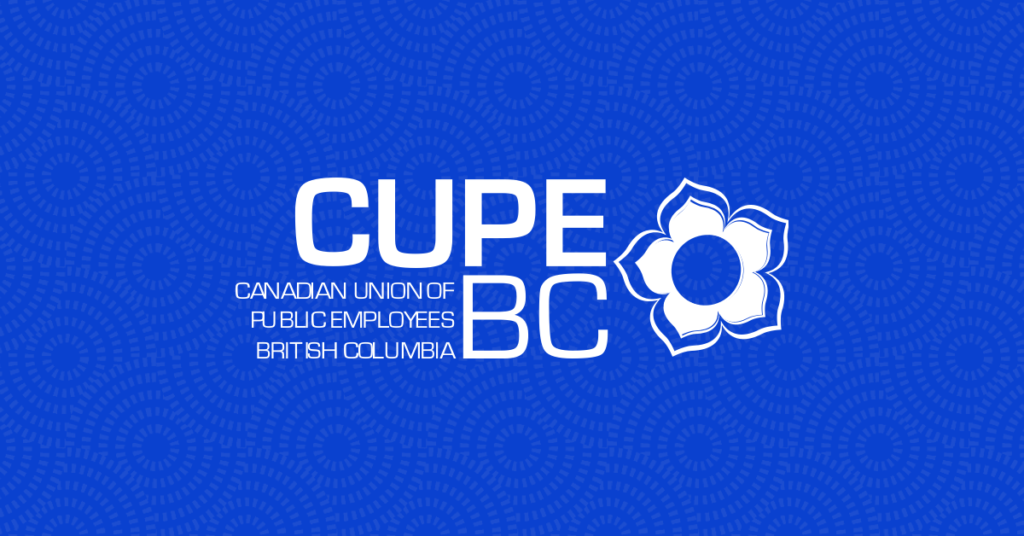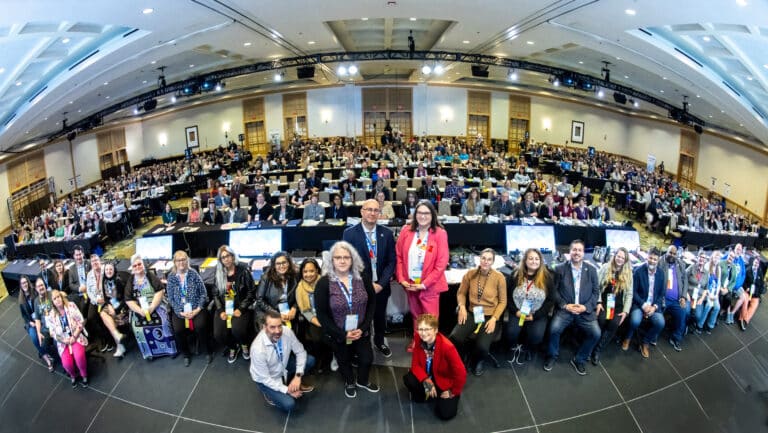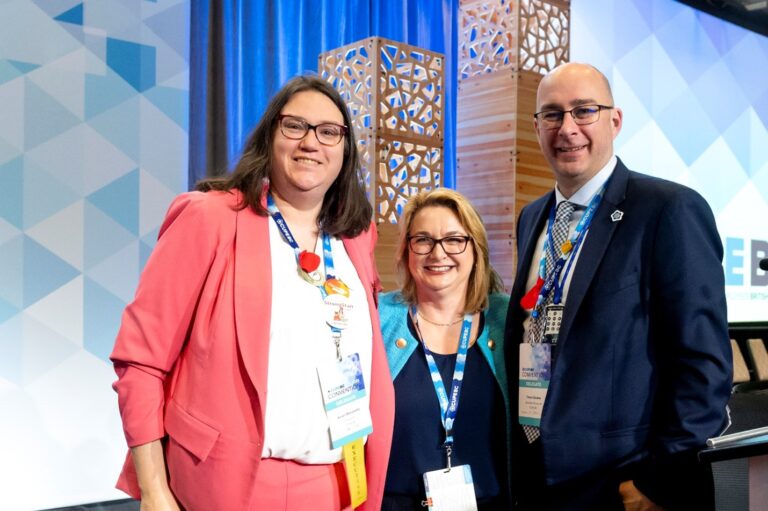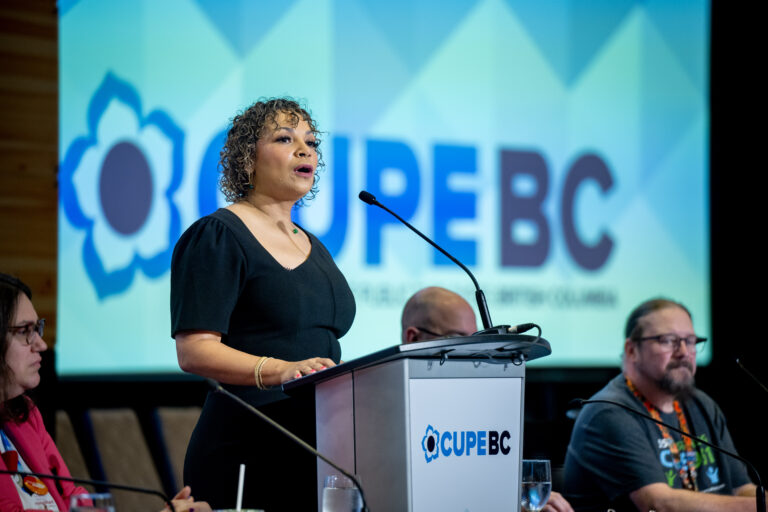RICHMOND—CUPE BC’s first human rights conference kicked off last night with a challenge from the keynote speaker to recognize cultural distinctiveness in the union’s continuing fight for equality in the workplace and society at large.
Susan O’Donnell, executive director of the BC Human Rights Coalition, told the conference’s 112 delegates that the goal of human rights is to achieve equality for everyone—not simply in the appearance of diversity but in the access to power.
“We have individual rights, but we also have collective rights and we have categorical rights,” said O’Donnell. “The challenge for us as unionists is to say, ‘How can we as categorical groups of people within the union still be equal?’ We need to understand the complexities of those rights so that we can have a discussion that accommodates the differences in all of us.”
Much progress made
O’Donnell’s keynote address, which singled out CUPE as one of the country’s most outstanding unions for making equality and social justice top priorities, provided a brief background of human rights progress in Canada.
While women’s rights have improved greatly over the past several decades, O’Donnell noted, the continued existence of the Indian Act means that Canada’s aboriginal people continue to be treated as second-class citizens.
“The federal government made a deal with the tribal councils to only provide status for three generations. They returned the status to these women and children but gave no money to clothe and feed them,” she said.
First Nations Elder Larry Grant, who brought greetings to the conference from the Musqueam Nation, provided a stark, geographical reminder of how his people’s rights have been denied since white settlement began.
Although Musqueam land is unceded territory, said Grant, his people have seen their language disappear and their land reduced from what was once a vast section of the Lower Mainland.
“Today we’re contained to 166 hectares in South Vancouver, right across the river from here,” he said.
Grant noted that Canada, the United States, Australia and New Zealand had finally agreed to accept the United Nations Declaration on Aboriginal Rights—but with conditions that virtually guarantee the status quo.
“If they’re going to come on board then there’s a moral obligation to deal with us as human beings and not wards of the state as we are today,” he said.
Unions can make a difference
Grant, a 30-year member of the International Longshore and Warehouse Union (ILWU), recalled how his union protected him from a great deal of abuse and discrimination.
“If we don’t look after each other as brothers and sisters, then there can be no human rights,” he said. “That’s why I spent six years as a trustee, giving back to the union that helped me.”
CUPE BC president Barry O’Neill echoed this solidarity message in his remarks.
“When I think about human rights, I don’t think about what might be written in a code or a manual or a document or a declaration,” he told delegates. “I think about what it means to my family—the common rights that everybody should have.”
The key, he explained, likes in recognizing that we have to respect each person’s unique experience. Treating everyone the same won’t work because people are not the same. But nor should we feel discouraged if we don’t understand everything about a different culture we’re encountering. That’s where learning comes in.
“Don’t give up, because you can and will make a difference—you will make it happen,” said O’Neill. “Don’t for one minute think that because you are frustrated that it won’t have an impact. Everything you learn, and every person that you talk to, will ultimately help make a difference.”
CUPE BC’s human rights conference, “Making it Happen,” continued with a panel discussion this morning and workshops throughout the day. The conference ends tomorrow.





